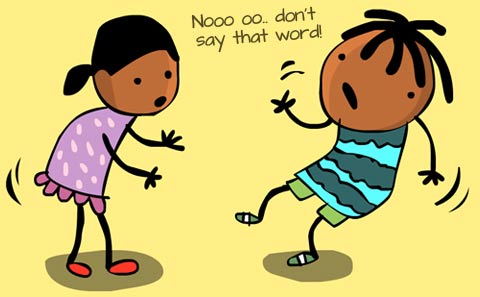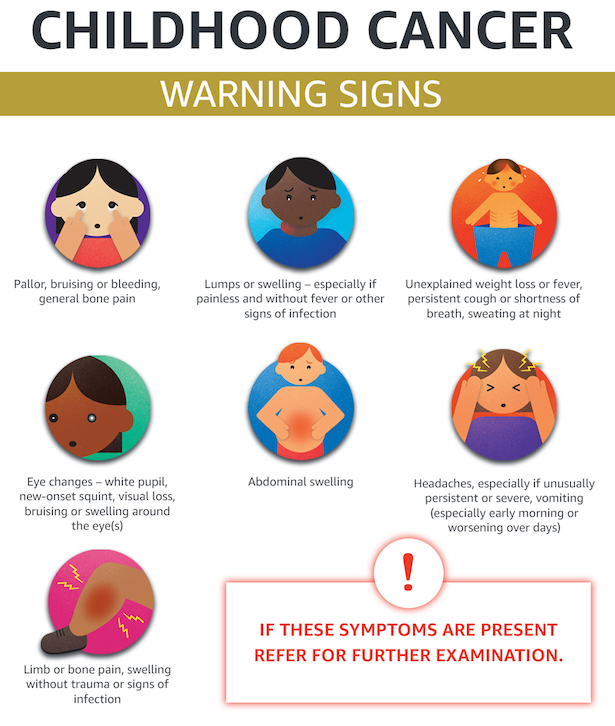


Screening for cancer in children
Screening is testing for a disease such as cancer in people who don’t have any symptoms. Childhood cancers are rare, and there are no widely recommended screening tests to look for cancer in children who are not at increased risk.
Some children have a higher chance of developing a specific type of cancer because of certain gene changes they inherit from a parent. These children may need careful, regular medical check-ups that include special tests to look for early signs of cancer.
Possible signs and symptoms of cancer in children
Many cancers in children are found early, either by a child’s doctor or by parents or relatives. But cancers in children can be hard to recognise right away because early symptoms are often like those caused by much more common illnesses or injuries. Children often get sick or have bumps or bruises that might mask the early signs of cancer. Cancer in children is not common, but it’s important to have your child checked by a doctor if they have unusual signs or symptoms that do not go away, such as:
- An unusual lump or swelling
- Unexplained paleness and loss of energy
- Easy bruising
- An ongoing pain in one area of the body
- Limping
- Unexplained fever or illness that doesn’t go away
- Frequent headaches, often with vomiting
- Sudden eye or vision changes
- Sudden unexplained weight loss
Most of these symptoms are much more likely to be caused by something other than cancer, such as an injury or infection. Still, if your child has any of these symptoms, see a doctor so that the cause can be found and treated, if needed.
Other symptoms are also possible, depending on the type of cancer. You can find more information on common symptoms for specific types of childhood cancer in Cancers that develop in children
Seeing a doctor
The doctor will ask about medical history and symptoms, and examine your child. If cancer is a possible cause, the doctor might order imaging tests (such as x-rays) or other tests. Sometimes if an abnormal lump or tumor is found, the doctor might need to remove some or all of it so that it can be looked at under a microscope for cancer cells. This is known as a biopsy.
If your child is found to have cancer, we offer assistance for coping and moving forward after the diagnosis is made.

